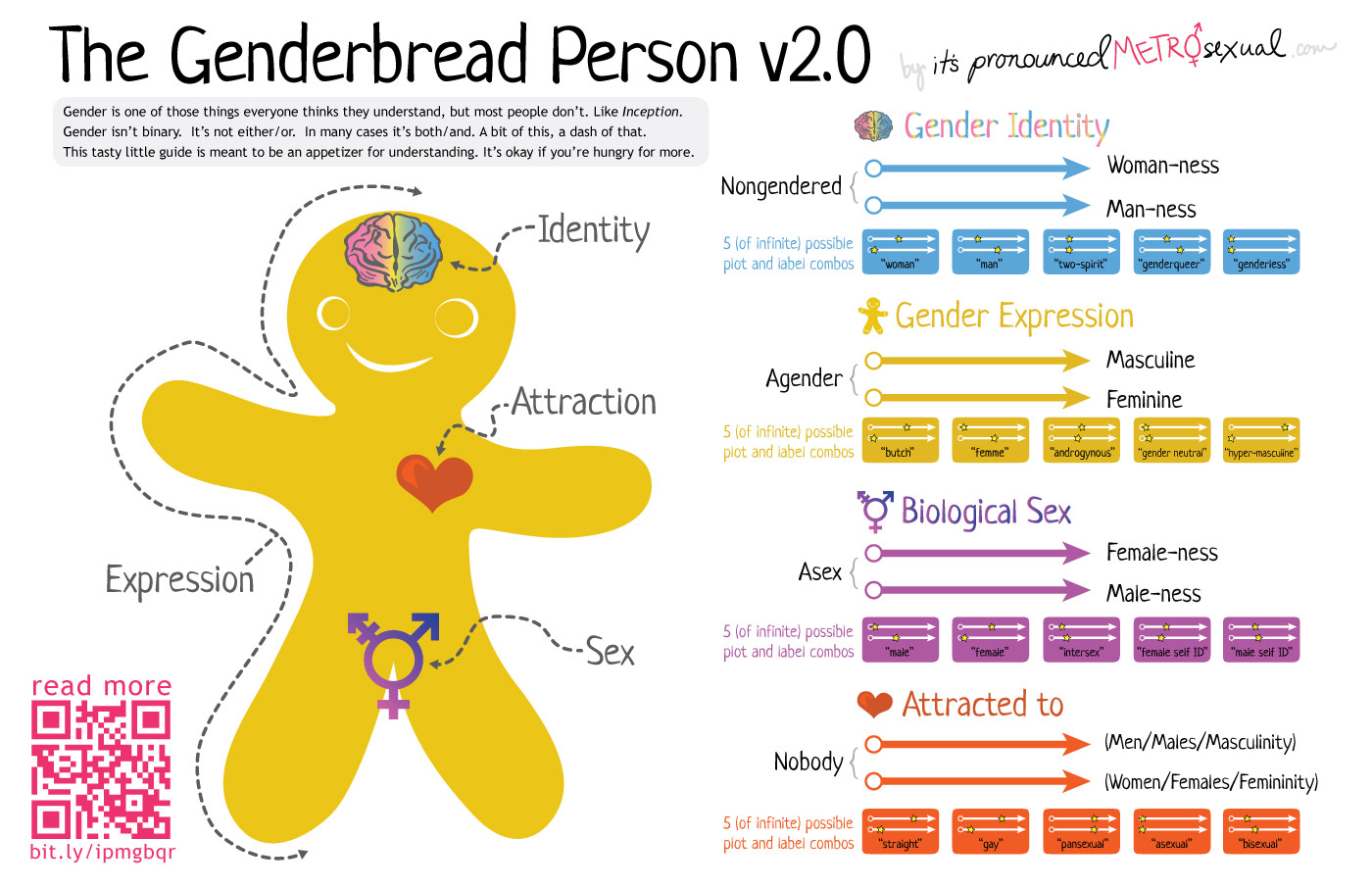This past Friday marked our last Hot Topics meeting, in
which we talked about the gender and sexuality spectrum. We discussed that
there are many dimensions that make up our sexual identities, such as gender
identity, gender expression, biological (or assigned) sex, and sexual orientation.
We focused mostly on gender identity, which is a person’s
perception of their own gender. Many people think of gender as just two things,
man or woman. This is called a gender binary, but there are so many other ways
our gender can be identified, which includes genderqueer, genderless, and more.
Gender expression is the way someone chooses to display
themselves (mannerisms, clothing choice, etc) and can range from being
masculine, feminine, androgynous, femme, butch, agender and more.
Biological sex, or sex assigned at birth, is categorized by
our sexual organs and hormones. Usually, people also refer to biological sex as
a binary – male or female – but there are more categories such as intersex.
Sexual orientation is about who we are attracted to, which
can include straight, gay, bisexual, asexual, pansexual, etc.
Two of our guests at our meeting spoke about their
experiences being transgender, which is when your assigned sex at birth does
not match your gender identity. They shared what it was like being a
transgender youth and their journey to adulthood. They also explained that
transgender is an umbrella term and that there are many types of ways to be
transgender, including female-to-male, male-to-female, two-spirit, bigender,
and many more.
Each dimension stands alone, meaning that your identity in
one category does not necessarily affect or change your identity in another
category. For instance, someone was assigned female at birth and is attracted to
men. If they identify as a man, this does not mean their attraction changes; they
can still be attracted to men.
Although there were some labels listed for each dimension, there
are infinite ways to categorize (or not categorize) ourselves. So many aspects
of our lives make us unique, and our sexuality is no different.


No comments:
Post a Comment